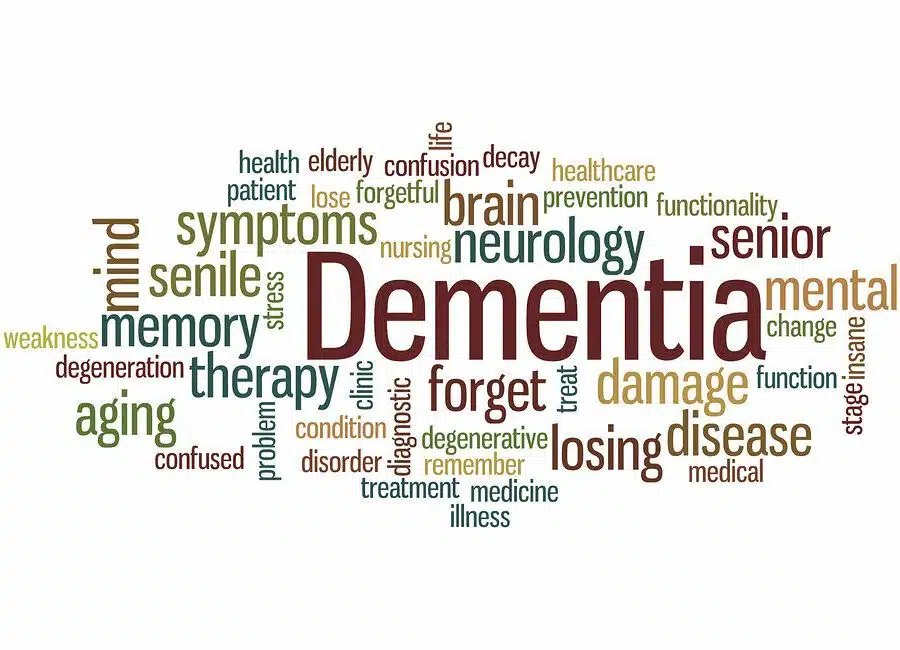Depending on the extent of your senior’s dementia, she may not be able to let you know that she’s in pain. So, how can you tell?
Make Sure You Know Her Health Issues

The more familiar you are with your senior’s health issues, both the ones that have been around a while and the newer ones, the easier it may be for you to understand what’s happening with your senior’s pain levels. Chronic health issues may be getting worse, like arthritis or gout, for instance. With some of those conditions you can also see visible signs, like swelling or redness, that clue you in to pain. For newer health issues, you may have to be more observant.
Consider What She’s Been Doing
You may not always be able to extrapolate pain from what your senior has been doing, but there can be clues there sometimes. If she’s walked a lot that day, she may experience pain in her feet, for example. Or if she’s been focused on a project or sitting in one position for a long time, her muscles may be stiff and sore. Try to factor that in when you’re considering how she’s feeling.
Ask Your Senior if She’s in Pain
It’s easy to forget this option, but you can always ask your senior if she’s in pain. This doesn’t always go the way you expect, but even if your senior has trouble communicating, there may be a sign that she adopts to answer affirmatively when you ask if she’s in pain. When using this option, keep in mind whether your senior’s short-term memory is especially bad or not. She may be feeling pain, but literally forget that she is, which makes asking her a difficult way to get an answer.
Look for Signs that Can Indicate Pain
There are, however, other signs that might be key indicators of pain for your senior. Grimacing or making other facial expressions may clue you in, for instance. Or your senior might make sounds when she’s in pain. Some aging adults withdraw from socializing or stop eating when they’re in pain. Your elderly family member might appear more confused than usual, indicating that her attention is focused elsewhere.
It’s natural that you want to do whatever you can to help your senior to deal with pain, but dementia can make that a complicated task. Working with a caregiver may help you to stay on top of what your senior is experiencing, making it easier for you to help her to feel her best.
If you or an aging loved-one is considering a Caregiver in Manhattan, NY please contact the caring staff at Prime Care, Inc. today. (212) 944-0244
